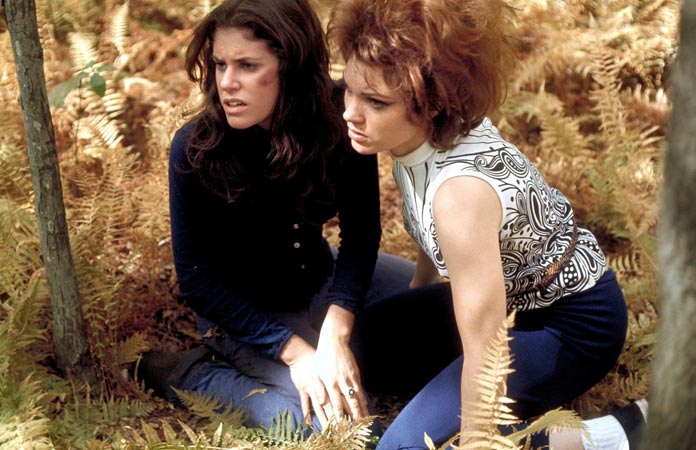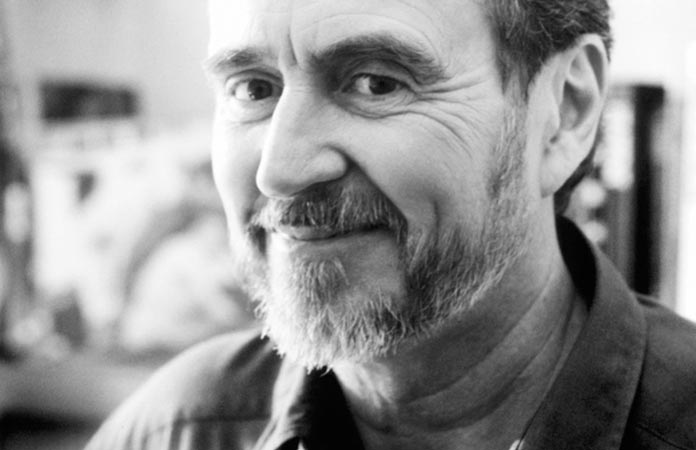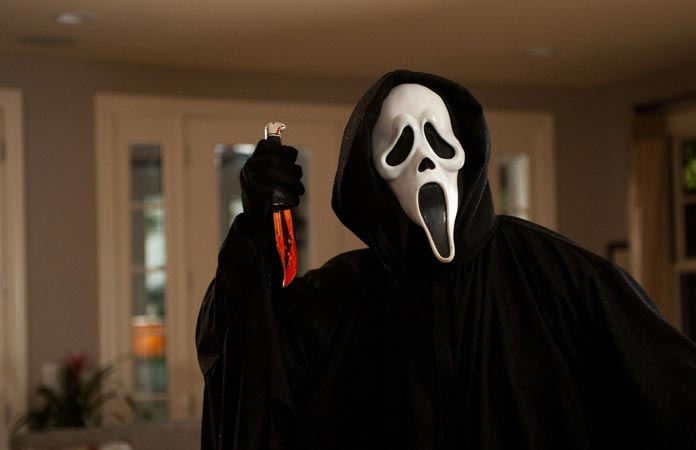The Wishful Cinema of Wes Craven: 1939 – 2015
Published on September 1st, 2015 in: Horror, Movies, Obituary |The year is 2000, and the 72nd annual Academy Awards are in full swing. It’s a heavy year for the Best Actress category, with Hilary Swank, Annette Bening, Janet McTeer, and Julianne Moore all in contention for the golden stature. Meryl Streep is nominated too, for a little movie called Music of the Heart. It’s one of those roles Streep has made a career of, playing strong Caucasian women who overcome the odds and make a huge difference in the lives of others, usually not Caucasians. Streep being at the Oscars isn’t a surprise. The thing different about this picture is the director of Music of the Heart, who is not nominated for an award.
His name is Wes Craven.
How the hell did this happen? Craven? That horror guy? He has no place at a prestigious event like this. That much is obvious from his lack of a nomination. Who does he think he is?

The Last House on the Left, 1972
Craven seemed to find his way into the horror genre by accident. Horror is not a stupid genre, despite what its detractors would like you to think, and Craven always seemed smarter than most of his contemporaries. This is a man who based his first horror film, The Last House on the Left, on the Ingmar Bergman film, The Virgin Spring. Those are some lofty arthouse aspirations for any filmmaker, but they seem even more so for a guy known for creating Freddy Krueger.
A Nightmare on Elm Street became a horror classic. No one outside of Max Ophuls had been able to bring the twisted logic of the dream world to life on screen like Craven. It made sense for Craven to stay in the genre because that’s where the money was. The demand for new horror movies, especially with a “name” attached to them, was gigantic.
This is why we have weird D-grade movies from Craven like Deadly Friend and Deadly Blessing. Killer robots and murderous Mennonites are not the sort of stuff you write home about. Then again, Deadly Friend has one of the most popular .gifs on the Internet. That doesn’t make it a good movie. It’s not.
You’ve got to wonder where Craven was during these movies, the real Craven, the one who wanted to make Bergman films.
The golden era of slasher movies died an ignominious death, choked by pointless sequels and increasing pressure from parental concern groups to tone down the violence. Instead of opting out and attempting to make a movie outside the genre, Craven ended up revitalizing the whole damned thing with Scream, written by Kevin Williamson, a movie credited with bringing horror movies back to the forefront.
Did Craven expect that? Was it in his mind to make horror viable again? Or was he wishing for something else?
“When you have a name that means scares, you have to live with that.”
—Wes Craven, 2005
There’s no doubt Wes Craven made a tremendous impact within the horror genre. You like the Freddy Kreuger movies? Thank Craven. You dig redneck mutant cannibals? Craven gave you that. Are you a fan of sly, self-referential horror movies that reward movie geeks for knowing gore minutiae? Yeah. That’s because of Wes Craven.
Make no mistake: in between the greatness, there was a lot of crap. Try sitting through My Soul to Take and understanding it fully. It’s a wretched mess, and it’s not the only one in the man’s catalog. We don’t speak ill of the dead, of course, but some his work is remarkably terrible.
That’s why I think about Wes Craven sitting in the Dorothy Chandler Pavilion, years of work under his belt, neglected for his direction yet again, fuckin’ Meryl Streep nominated for doing the same thing for the bazillionth time.
When Craven’s movies were good, they were masterpieces, untouchable pieces of horror art. When they were bad, they were very, very bad, and he became the laughingstock of the horror universe. I think the truth is somewhere in the middle. Wes Craven was too good for us in the horror field, a misplaced genius who learned to live in a genre beneath him, cranking out flicks built on set pieces and fractured family dynamics, hitting and missing, hoping to at last be taken seriously by a public who only knew him as “the horror guy.” I believe that because I need to believe that.
You believe what you want.
Meryl Streep lost the Oscar that year to Hilary Swank.
After Music of the Heart, Craven’s next film was the horror sequel, Scream 3.


Time limit is exhausted. Please reload the CAPTCHA.